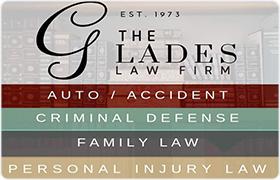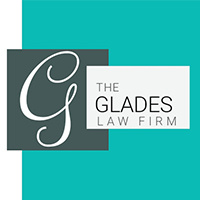Joplin Divorce & Family Law Lawyer, Missouri
Sponsored Law Firm
-
 x
x

Click For More Info:
-
The Glades Law Firm, P.C.
1120 SE Murphy Blvd Joplin, MO 64801» view mapDivorce & Family Law Determined. Experienced. Passionate.
Serving Southwest Missouri since 1973. Our experienced legal staff is dedicated to helping you with personal injury, criminal defense, and family law matters.
800-965-6971
Phillip Alan Glades
✓ VERIFIED *Status is reviewed annually. For latest information visit hereAccident & Injury, Divorce & Family Law, Criminal
Our experienced legal staff is dedicated to helping you with the following legal matters: Family Law Criminal Defense Personal Injury
Joe Hensley
Family Law, Construction, Divorce, Farms
Status: In Good Standing *Status is reviewed annually. For latest information visit here
Shannon McKinney
Child Support, Adoption, Contract, Business Organization
Status: In Good Standing *Status is reviewed annually. For latest information visit here
FREE CONSULTATION
CONTACTNicole Carlton
Litigation, Estate, Family Law, Criminal
Status: In Good Standing *Status is reviewed annually. For latest information visit here
David Benjamin Meyer
Accident & Injury, Workers' Compensation, Divorce & Family Law, Estate Planning
Status: In Good Standing *Status is reviewed annually. For latest information visit here
Bart Augustin Marcules
Collection, Corporate, Family Law, Traffic
Status: In Good Standing *Status is reviewed annually. For latest information visit here Licensed: 23 Years
Charles H. Lonardo
Foreclosure, Health Care Other, Divorce & Family Law, Juvenile Law, Bankruptcy & Debt
Status: In Good Standing *Status is reviewed annually. For latest information visit here
Walter E. Williams
Family Law, Child Custody, Divorce & Family Law, Personal Injury
Status: In Good Standing *Status is reviewed annually. For latest information visit here
Elizabeth Davis
Estate Planning, Adoption, Criminal, Car Accident
Status: In Good Standing *Status is reviewed annually. For latest information visit here
Tracey Dawn Martin
Civil Rights, Family Law, Juvenile Law, Criminal
Status: In Good Standing *Status is reviewed annually. For latest information visit here
 Phillip A. Glades Joplin, MO
Phillip A. Glades Joplin, MO Practice AreasExpertise
Practice AreasExpertise
